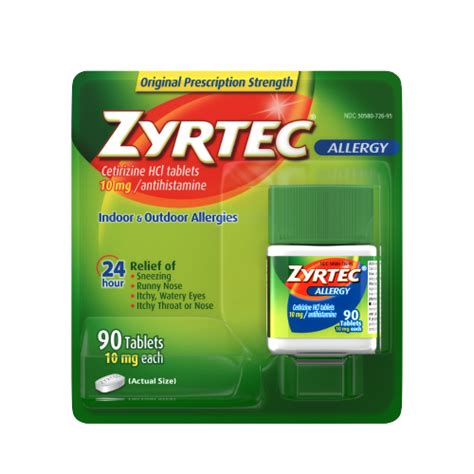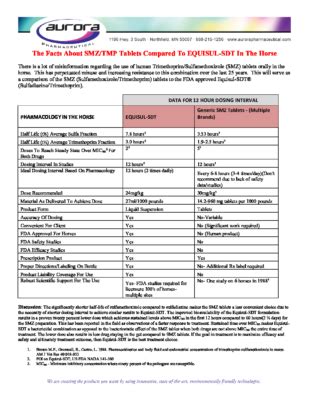Over The Counter Allergy Meds

When it comes to managing allergy symptoms, over-the-counter (OTC) medications are often the first line of defense for many individuals. These medications can provide relief from a range of symptoms, including itching, sneezing, runny nose, and congestion. However, with so many options available, it can be overwhelming to choose the right one. In this article, we will delve into the world of OTC allergy meds, exploring their types, mechanisms of action, and potential side effects.
Types of OTC Allergy Meds
- Antihistamines: These medications work by blocking the action of histamine, a chemical released by the body during an allergic reaction. Examples of antihistamines include diphenhydramine (Benadryl) and loratadine (Claritin).
- Decongestants: These medications help to reduce nasal congestion by constricting blood vessels in the nose. Examples of decongestants include pseudoephedrine (Sudafed) and phenylephrine (Sudafed PE).
- Combination Products: Many OTC allergy medications combine antihistamines and decongestants to provide relief from multiple symptoms.
- Nasal Sprays: These medications are applied directly to the nasal passages to provide targeted relief from congestion and itching.
When choosing an OTC allergy medication, it's essential to consider the specific symptoms you're experiencing. For example, if you're suffering from itchy eyes and a runny nose, an antihistamine may be a good option. However, if you're experiencing congestion and sinus pressure, a decongestant or combination product may be more effective.
Mechanisms of Action
OTC allergy medications work in different ways to provide relief from allergic symptoms. Antihistamines, for example, block the action of histamine, which is released by the body during an allergic reaction. Histamine causes blood vessels to dilate, leading to increased blood flow, swelling, and itching. By blocking histamine, antihistamines can help to reduce these symptoms.
Decongestants, on the other hand, work by constricting blood vessels in the nose, which helps to reduce nasal congestion. This can be especially helpful for individuals who experience sinus pressure and congestion during an allergic reaction.
Potential Side Effects
While OTC allergy medications can be effective in managing symptoms, they can also have potential side effects. Antihistamines, for example, can cause drowsiness, dry mouth, and blurred vision. Decongestants can cause insomnia, anxiety, and increased heart rate.
Pros and Cons of OTC Allergy Meds
- Pros:
- Provide quick relief from allergic symptoms
- Available over-the-counter, making them easily accessible
- Can be effective in managing symptoms for many individuals
- Cons:
- Can have potential side effects, such as drowsiness or insomnia
- May not be effective for everyone, especially those with severe allergies
- Can interact with other medications or worsen underlying medical conditions
Natural Alternatives
For those who prefer to avoid traditional medications or are looking for additional ways to manage their symptoms, there are several natural alternatives that may be helpful. These include:
- Quercetin: A flavonoid found in many fruits and vegetables, quercetin has natural anti-inflammatory properties that may help to reduce allergic symptoms.
- Nasal Saline Irrigation: Rinsing the nasal passages with a saline solution can help to remove allergens and reduce congestion.
- Butterbur: A herbal supplement, butterbur has been shown to have anti-inflammatory properties that may help to reduce allergic symptoms.
Using Natural Alternatives to Manage Allergy Symptoms
- Consult with a healthcare professional before trying any new supplements or remedies
- Start with a small dose or trial period to assess effectiveness and potential side effects
- Combine natural alternatives with other management strategies, such as avoiding allergens and using OTC medications as needed
FAQs
What is the best OTC allergy medication for congestion?
+The best OTC allergy medication for congestion will depend on the individual's specific symptoms and needs. However, decongestants such as pseudoephedrine (Sudafed) or phenylephrine (Sudafed PE) can be effective in reducing nasal congestion.
Can I take OTC allergy medications with other prescription medications?
+
How long do OTC allergy medications take to start working?
+The time it takes for OTC allergy medications to start working can vary depending on the specific medication and individual. However, many antihistamines and decongestants can start to take effect within 30 minutes to 1 hour after taking the medication.
In conclusion, OTC allergy medications can be an effective way to manage allergic symptoms, but it’s essential to choose the right medication for your specific needs and to be aware of potential side effects. By understanding the different types of OTC allergy meds, their mechanisms of action, and potential side effects, individuals can make informed decisions about their allergy management. Additionally, natural alternatives and combination therapies can provide additional relief and support for those looking to manage their symptoms in a more holistic way.


